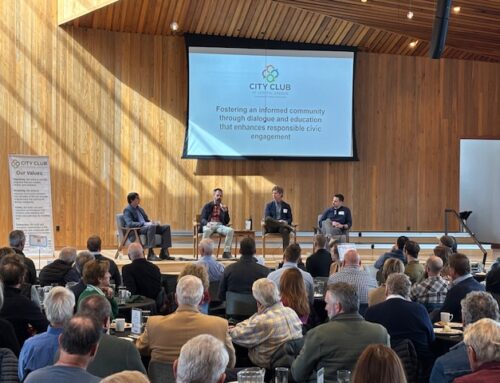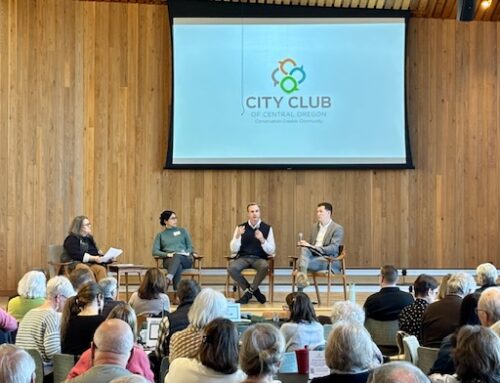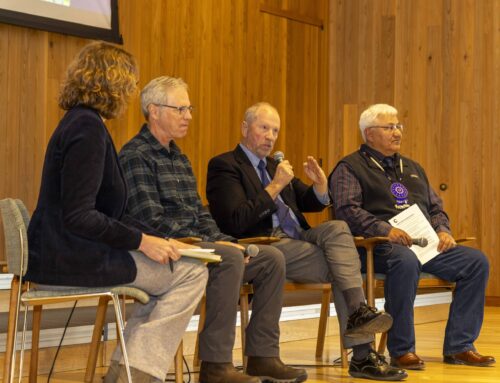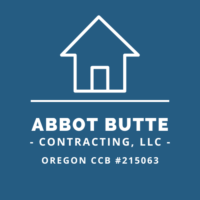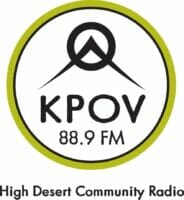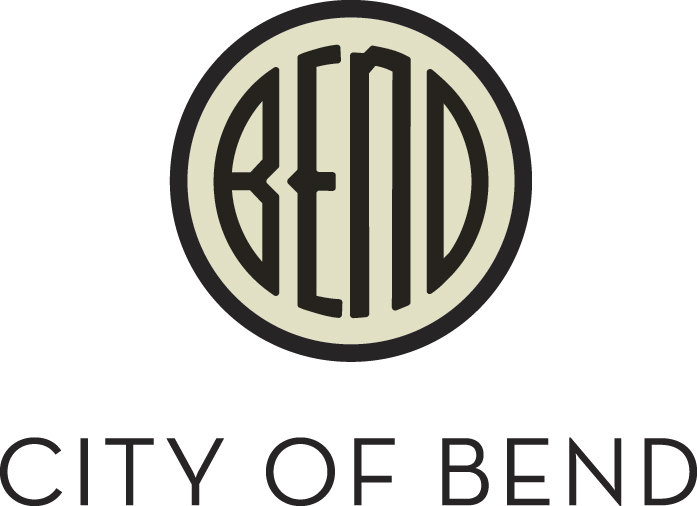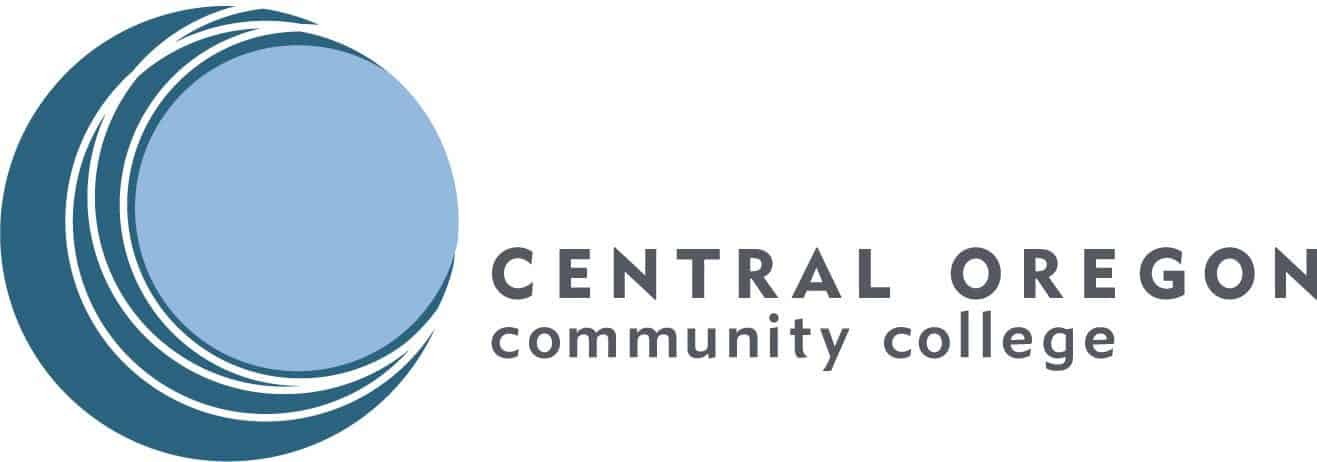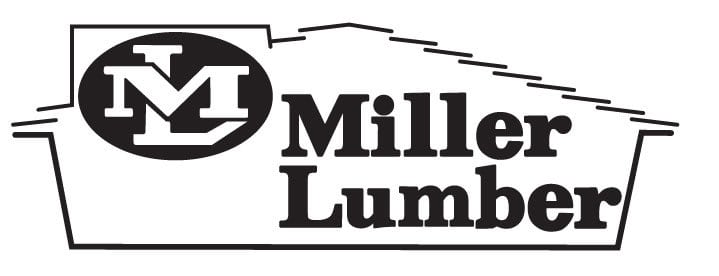On December 5, the City Club of Central Oregon hosted a thought-provoking forum about the future of Mt. Bachelor, one of the largest ski areas in the United States and a cornerstone of Bend’s community and economy. With Mt. Bachelor now on the market, local and national experts weighed in on what its potential sale could mean for Central Oregon.
A Local Treasure and Economic Powerhouse
Mt. Bachelor is more than just a mountain — it’s a driver of Bend’s economy, generating $157 million annually and serving as the second-largest employer in Central Oregon. One-third of Central Oregon’s visitors come for skiing or riding, often enjoying Bend’s downtown, Old Mill District, and breweries along the way.
“It’s no surprise that Mt. Bachelor is both iconic and beloved by residents in this community and around the Pacific Northwest,” said panel moderator Kate Porsche, director of the OSU Center for Outdoor Recreation Economy.
Industry Trends: Passes, Conglomerates, and Revenue Stability
Stuart Winchester, editor and host of The Storm Skiing Journal & Podcast, explained how multi-mountain passes like Epic and IKON have revolutionized the ski industry, offering convenience and stabilizing revenue streams. “These passes aren’t going anywhere,” he said. “They create a lot of money.”
While conglomerates often dominate ski area purchases, Winchester emphasized that it’s not inevitable for Mt. Bachelor to be sold to the largest players like Vail Resorts or Alterra Mountain Company. “Mt. Bachelor is extremely attractive,” he said. “Everyone has interest.”
He highlighted the diversity of potential buyers, from regional operators to independent investors.
Local Opportunities and Challenges
Ryan Andrews, CFO of Mt. Bachelor Community Inc., proposed an alternative vision for the mountain’s future: community ownership. Drawing inspiration from his company, Hiatus Homes, and Willamette Valley Vineyards’ successful model of local investment (it’s owned by more than 20,000 wine enthusiasts), Andrews believes in the power of local investors getting behind something the community wants.
He emphasized the potential for reinvestment in the mountain and keeping money local. “The reason you do this is to create benefit to the community economically, but also to give the community a say,” he said.
Andrews also acknowledged the challenges of competing against major players, likening the effort to “David in the ring against the Goliaths.” He stressed the need for high-net-worth anchor investors and tight timelines to make such a deal feasible, and then greater community involvement would follow.
There isn’t a sale price, but it’s rumored to be north of $200 million, said Andrews.
The Broader Impact of a Sale
Jordan Elliott, president of the Pacific Northwest Ski Areas Association, underscored the broader stakes. He pointed to the critical role of the trade association in addressing workforce education, climate change adaptation, and legislative challenges like liability waivers and Forest Service funding. Elliott cited a 2014 Oregon Supreme Court case that changed liability waiver enforceability, a ruling that could give potential buyers pause.
He also noted some of Mt. Bachelor’s competitive advantages, including its long ski season and high visitation rates, with Oregon pass holders visiting an average of nine times per season — nearly double the national average.
Winchester said that Bogus Basin in Idaho and Mad River Glen in Vermont are good parallels to what Andrews and Mt. Bachelor Community Inc. are trying to achieve, but neither offers season passes to shareholders, a benefit some Central Oregonians are interested in.
Looking ahead, Winchester’s ultimate hope is that the mountain gets a “good, stable owner who’s going to continue to evolve this into a world-class destination that it deserves to be.”
Thank you to KTVZ for livestreaming the forum. You can watch the video here.


